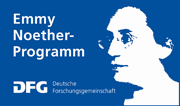CfP: Writing for Change: Environmental Journalism Then and Now
28–29 January 2019 Center for Advanced Studies, LMU Munich
20.06.2018
Dr. Simone M. Müller (Rachel Carson Center for Environment and Society, LMU Munich), Jun.-Prof. Dr. Evi Zemanek (German Studies, University of Freiburg)
DEADLINE 17 August 2018.
Without a doubt, the news media have played and still play an important part in arousing public concern about the environment. Since the late nineteenth century, and in particular since the 1970s, environmental journalists and environmentalists practicing journalism have reported on industrial pollution, conservation issues, and environmental disasters and uncovered the effects of climate change on everyday life. The example of Greenpeace, in turn, illustrates how environmental activism’s strategies, and even their success, often depends on garnering widespread news attention. The rise of environmental awareness and the environmental beat in news reporting go hand in hand.
The intricate relationship between creation of environmental awareness and environmental journalism, however, is problematic. Professionals have long struggled with the challenge of how to tell stories about highly complex science and policy debates which unfold slowly in meetings and journals. The long-term effects of pollution or environmental disasters on humans and ecosystems are not always easy to pin down. Sometimes, expert opinions seem to contradict each other. Moreover, there is the challenge of how to make readers (and editors) care about planetary changes that may not affect them, but will affect the next generation, people halfway around the globe, or nonhuman beings. Today’s post-truth and fake-news debates, e.g. centering on whether or not climate change is real, as well as a more general crisis of print media, exacerbate these existing difficulties. Despite the institutionalization of the environmental beat in news reporting in many industrialized countries in the 1970s, environmental journalism has long been on the decline. Even today, with increasingly pressing environmental issues, green journalism has remained “a delicate plant already on the list of endangered species,” according to Torsten Schäfer, head of the project “Climate Stories.”
In academia, despite the enormous rise of the environmental humanities and activist-researchers all around the world, environmental journalism and its history are two separate categories. While environmental history ascribes an important role to “the media” and environmentalists who practice journalism, we know little about environmental journalists en masse, their influences and their news strategies. Media and journalism studies, in turn, have primarily focused on the relationship between the news media and environmentalism in specific locations and times, or have explored the relationship between the media and specific issues, such as nuclear power, biotechnology, or climate change.
Environmental historians, media and journalism scholars, as well as environmental journalists, could greatly benefit from exploring the intersections between their work. The temporal dimension of most environmental issues is such that a long-term frame of thinking is necessary. Additionally, successful media campaigns from the past could inform strategies for tomorrow. Learning how “the media” and environmental journalism works, in turn, helps historians develop a more nuanced and critical understanding of “the press” and its acclaimed powers for environmental change, and might also help them pitch their research successfully to an audience beyond the ivory tower.
This interdisciplinary workshop “Writing for Change” seeks to create a platform of exchange for historians, media and journalism scholars, as well as practitioners, to discuss historic as well as current trends, strategies, dilemmas (and solutions) in environmental reporting.
We invite historical and current perspectives on the changing relationship between journalism and the creation of public environmental awareness. Papers could investigate, for instance, the careers of individual environmental journalists and science writers, the policies of environmental agenda setting, or environmental news forms, technologies, and outlets and how they have changed over time.
The workshop takes place in cooperation with LMU Munich’s Center for Advanced Studies. Its excellent facilities and the exclusive setting will help create the perfect working atmosphere to think through some of these questions together.
Accommodation costs are covered and there will be a subsidy for travel costs.
Please send an abstract of 750 words max. and your CV in ONE PDF DOCUMENT by 17 August to: haztrav@rcc.lmu.de.






